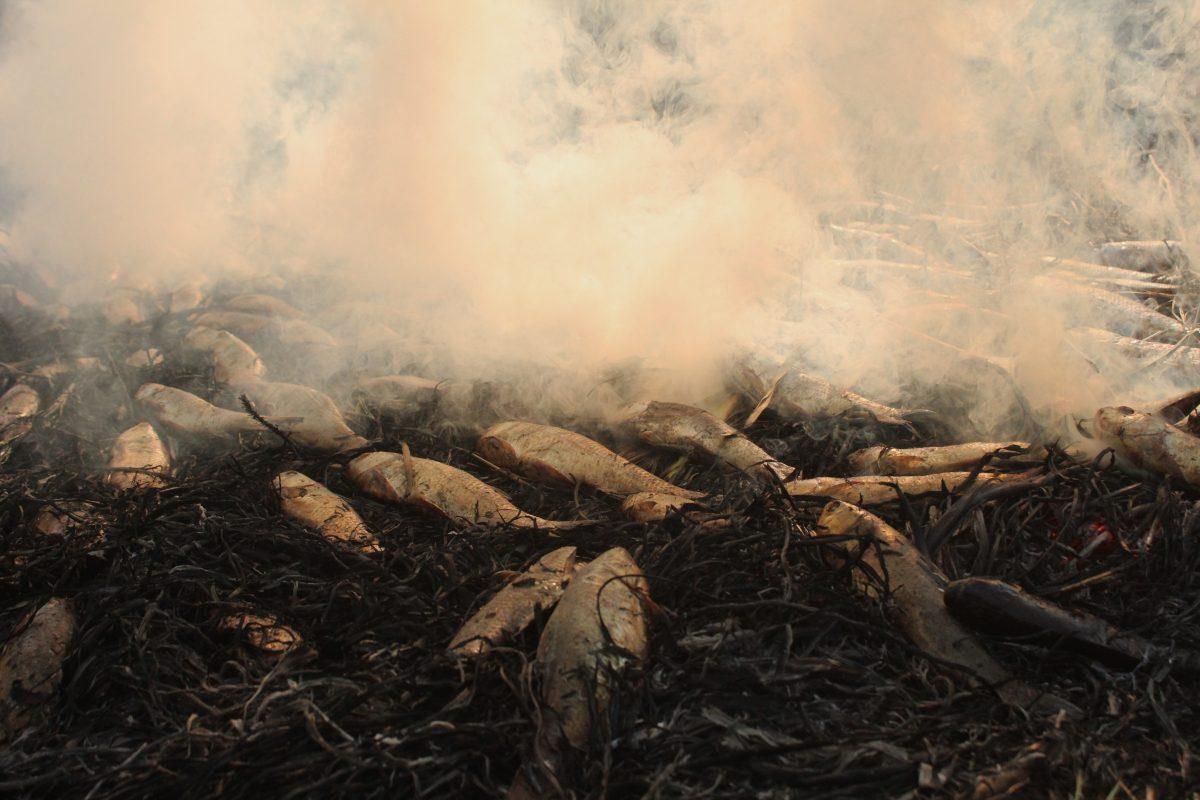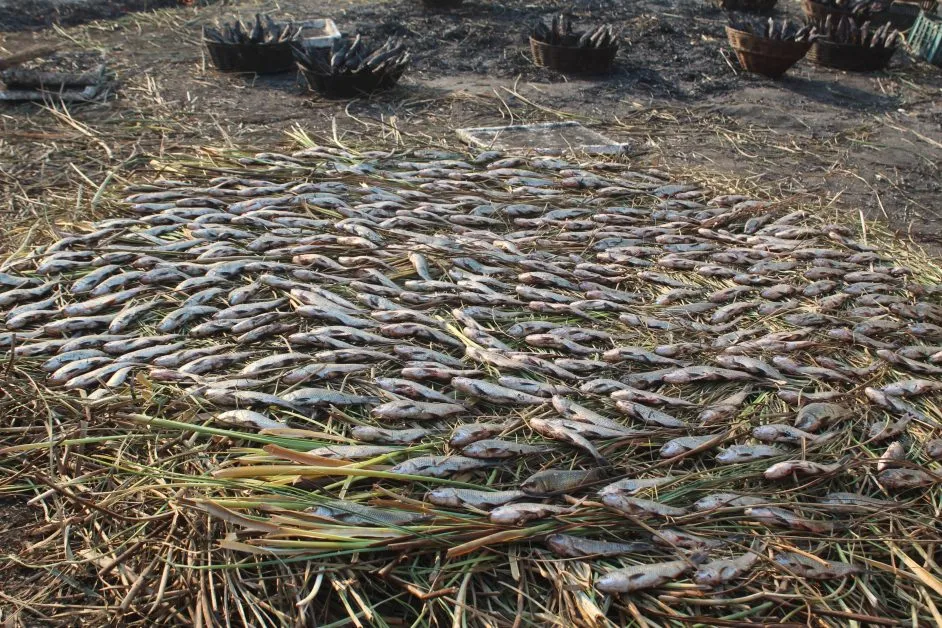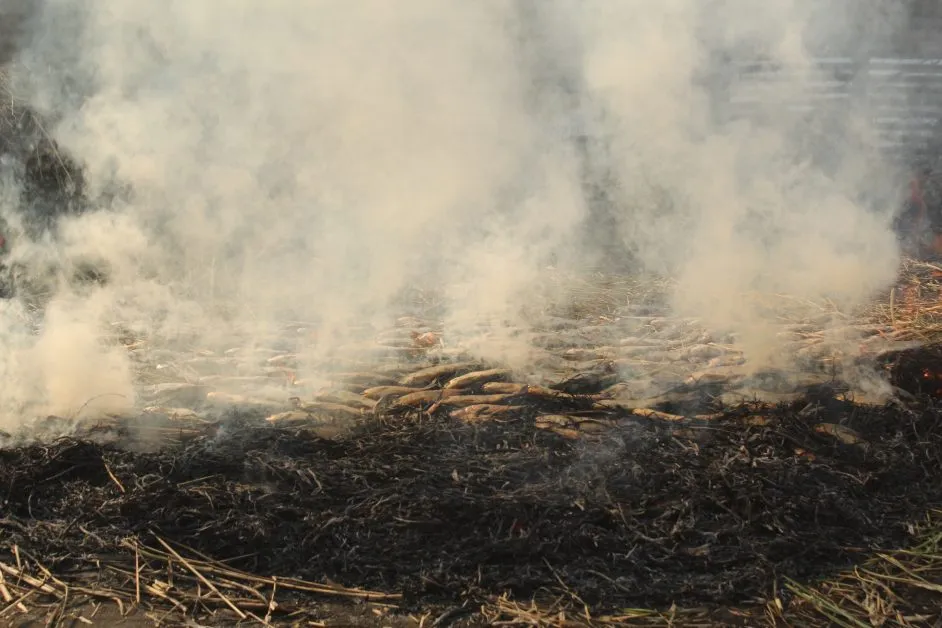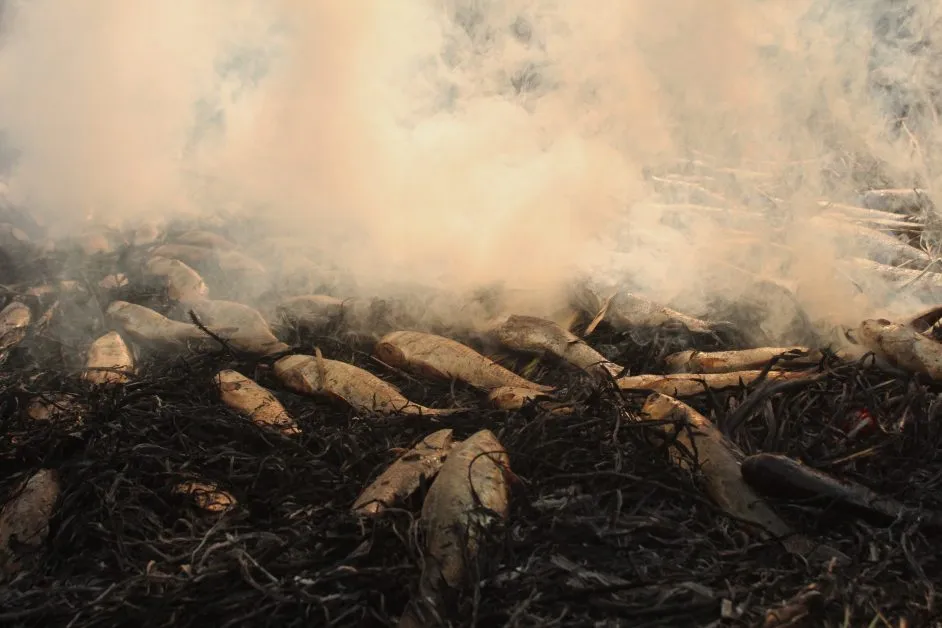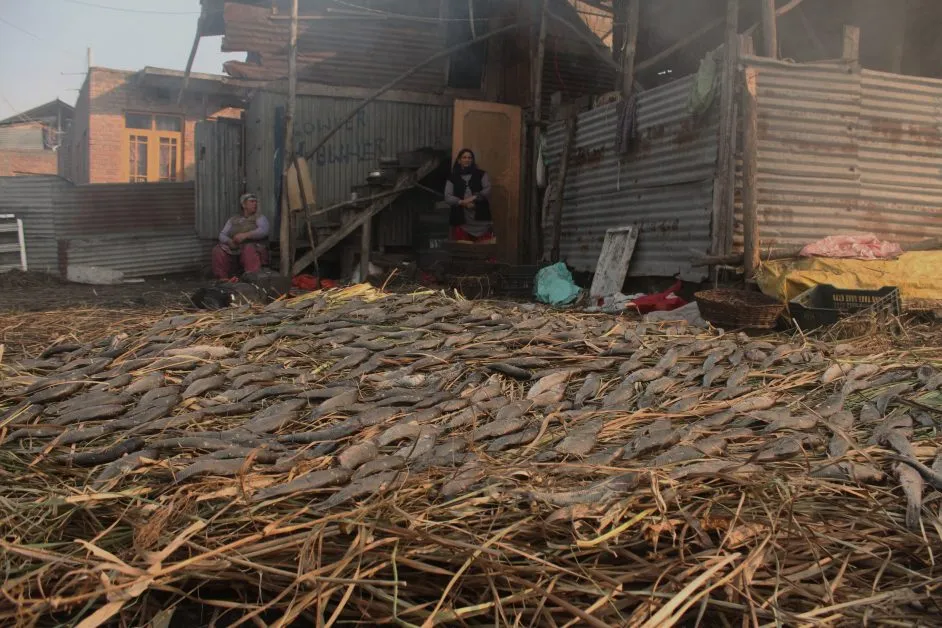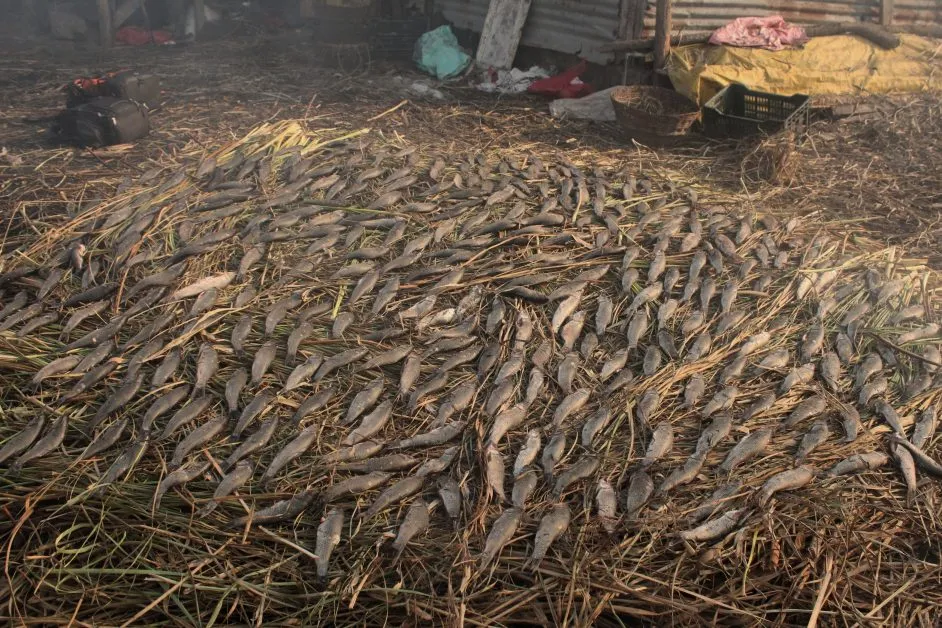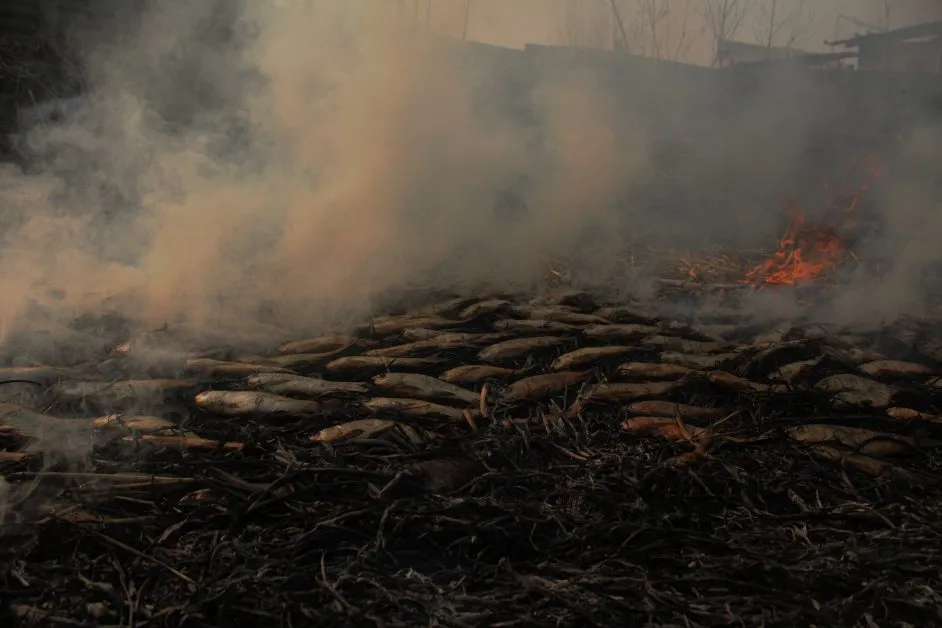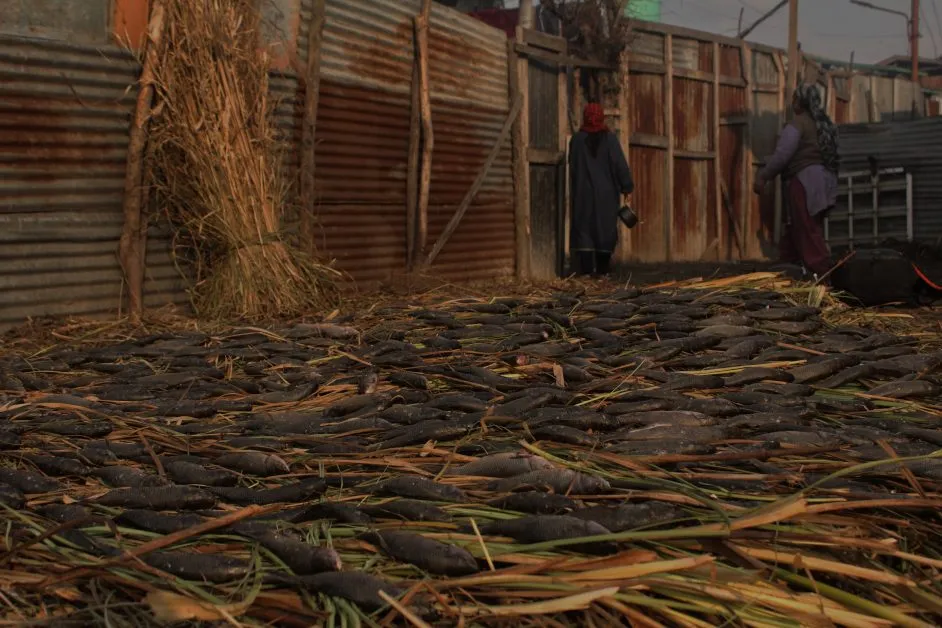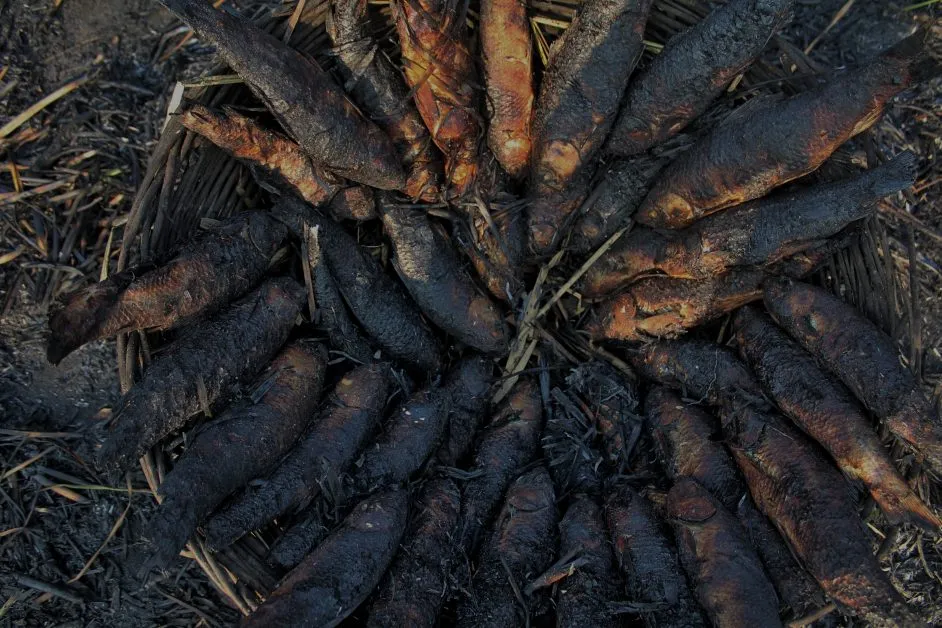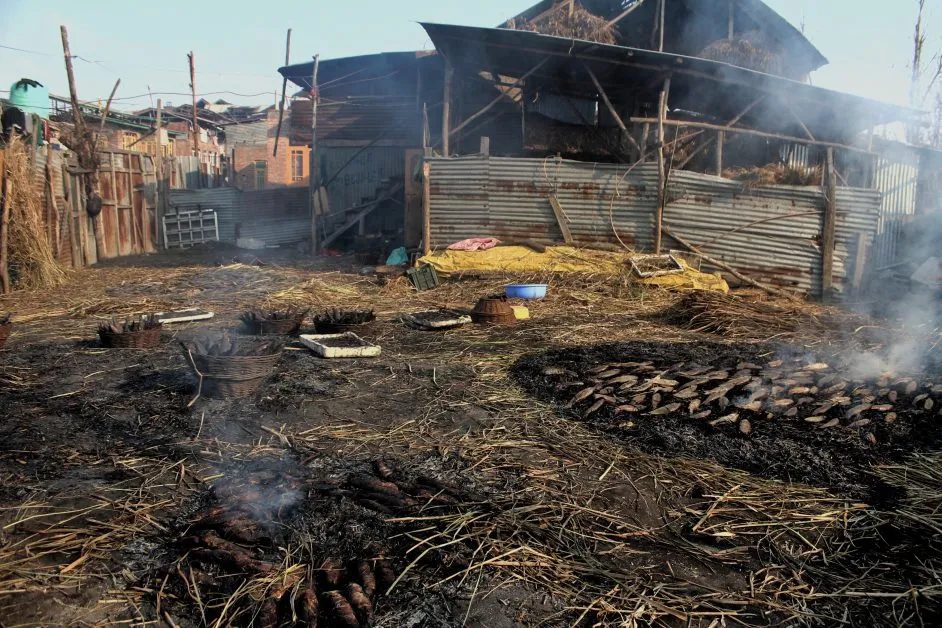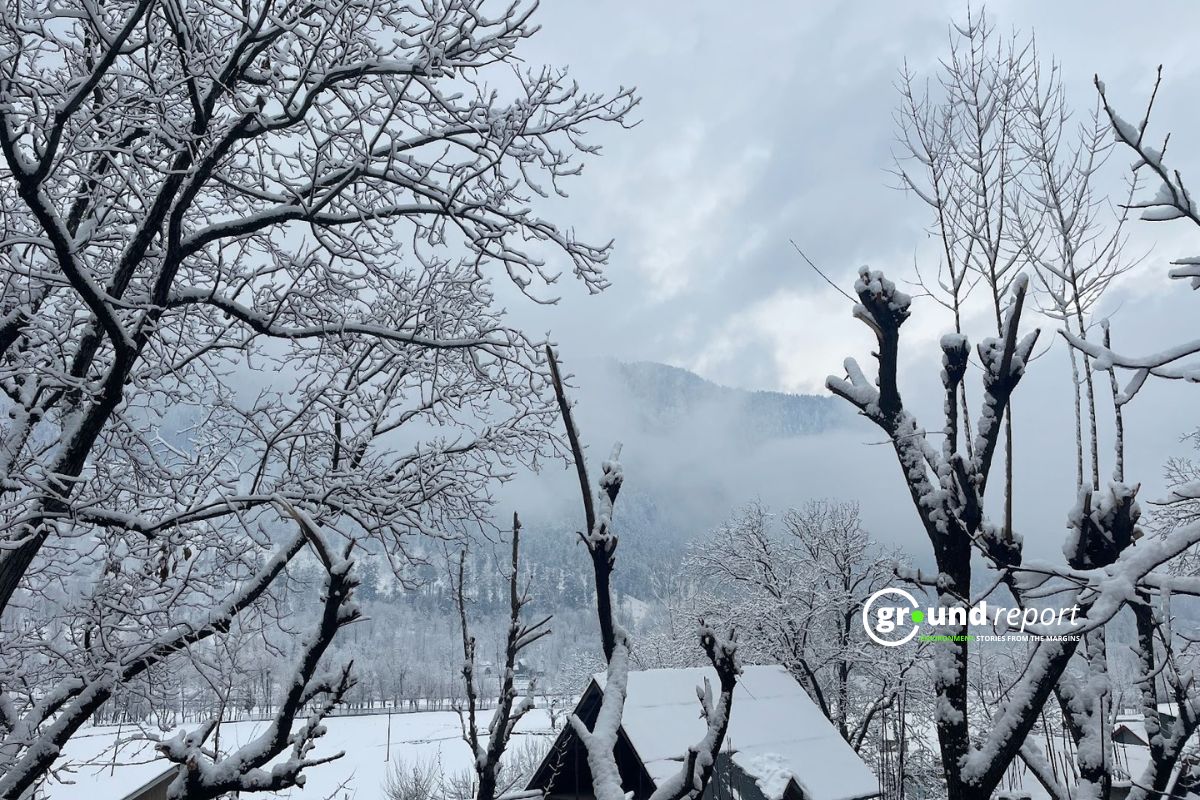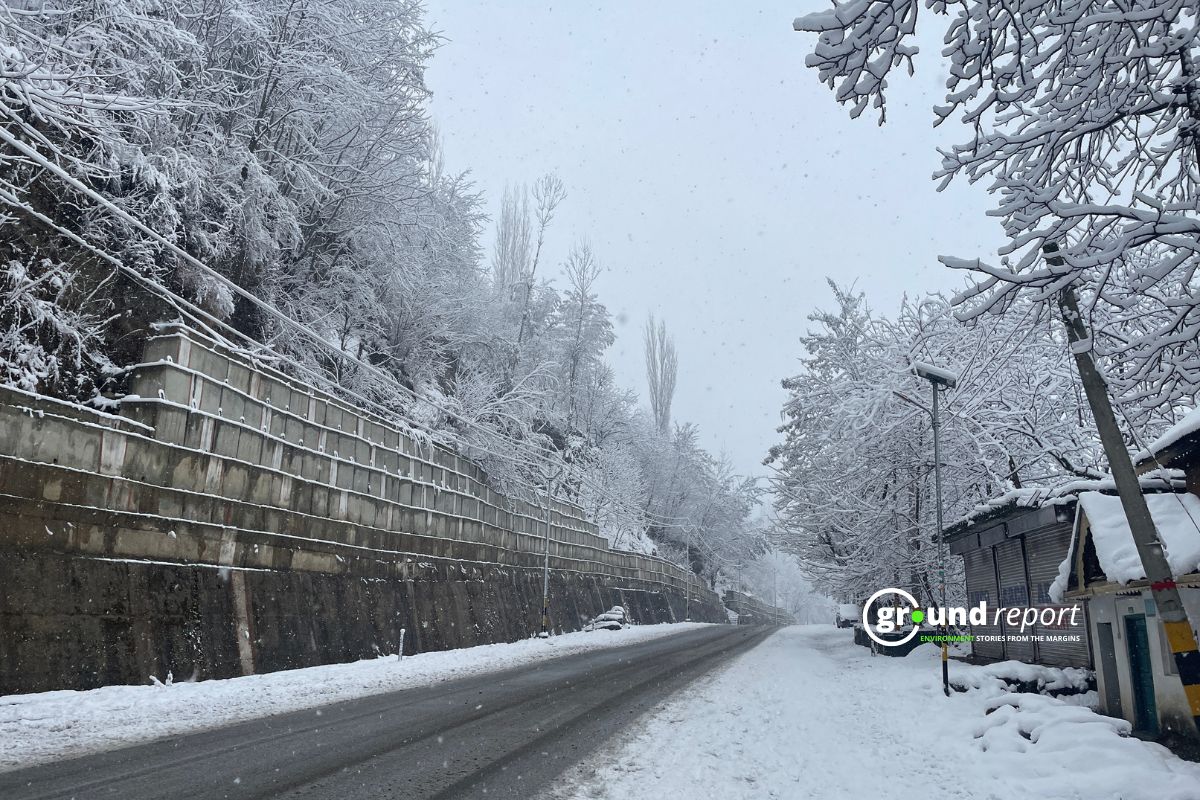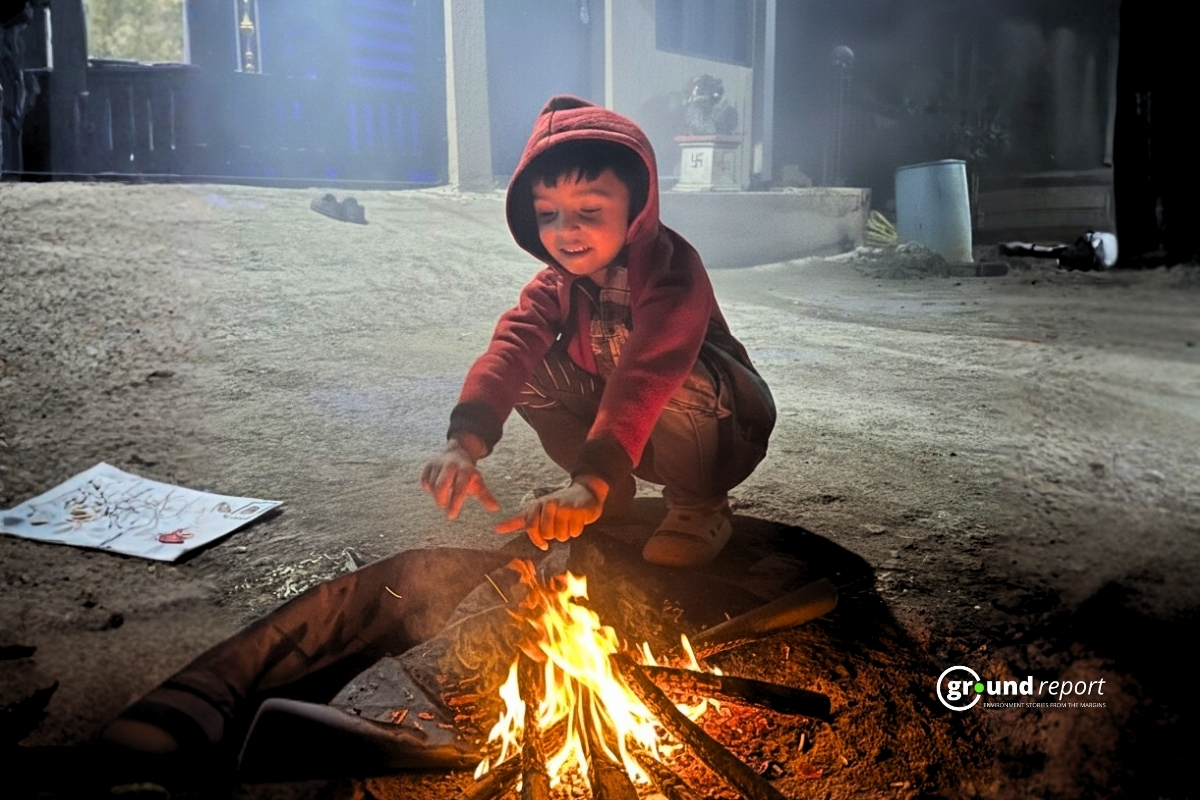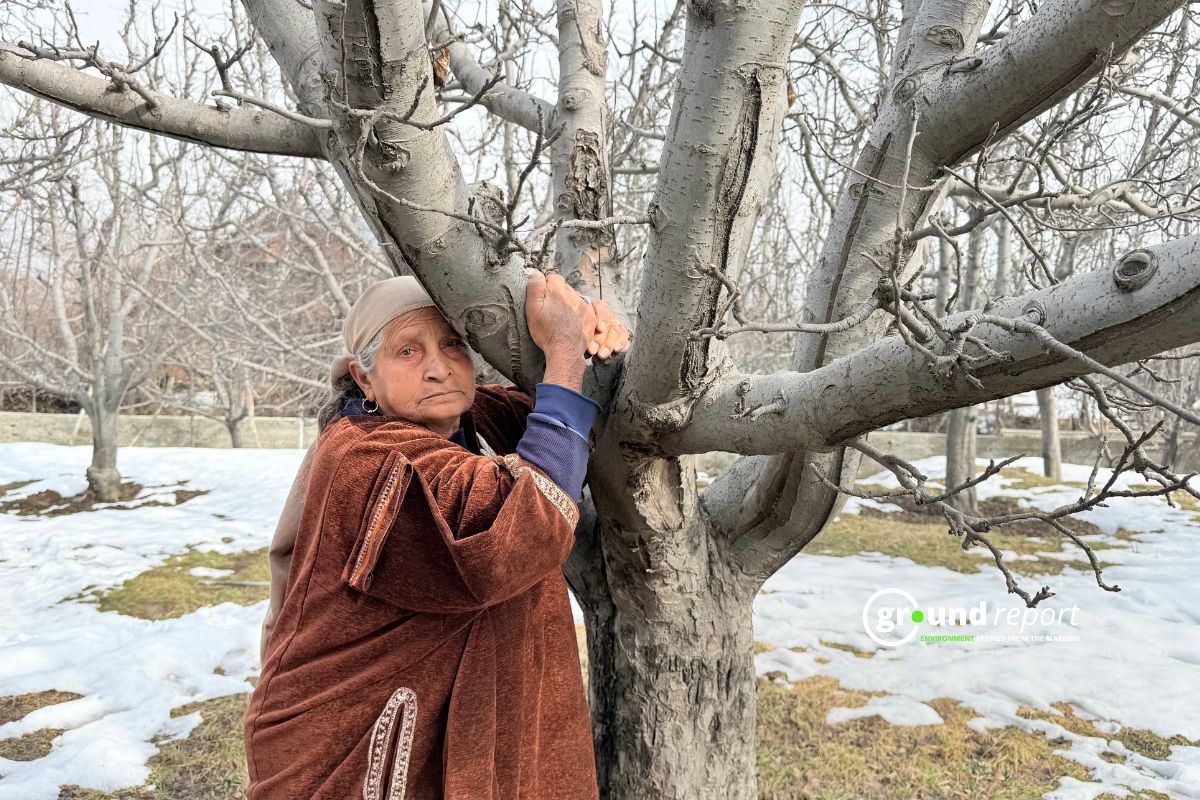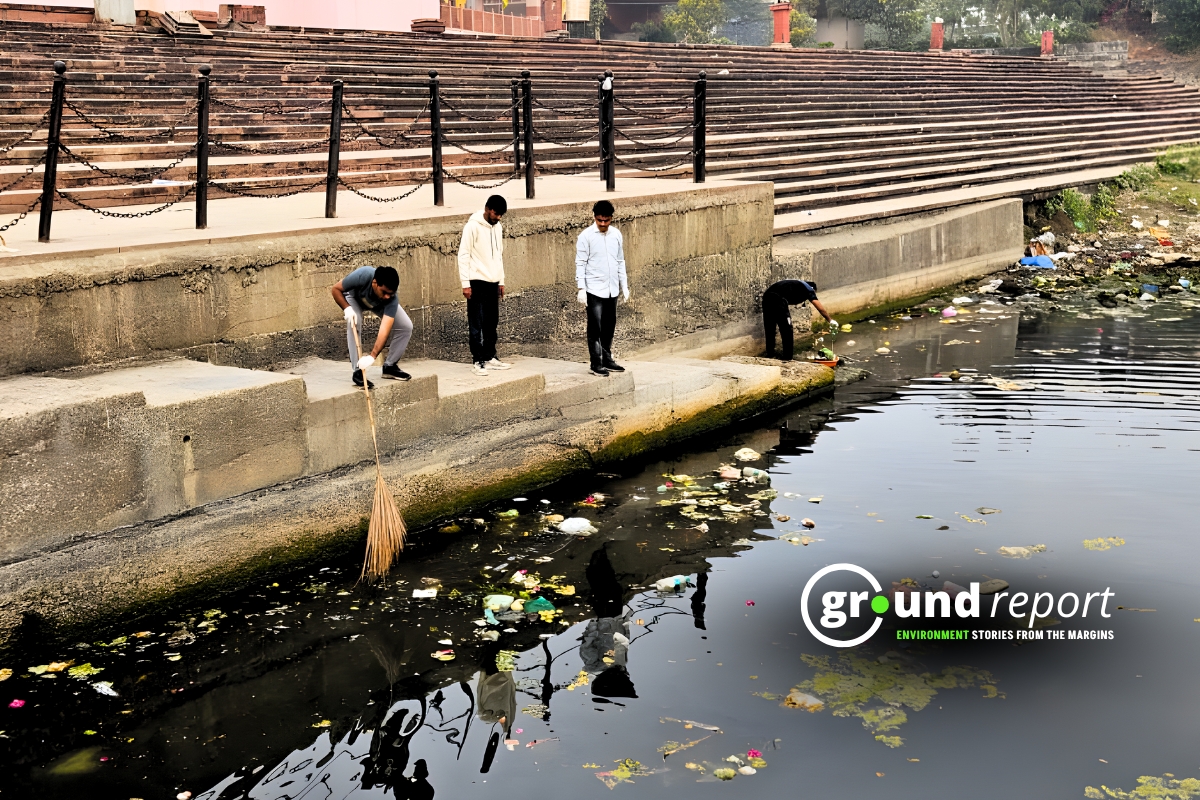Faisal Malik| Srinagar | The age old traditional delicacy smoked fish “Feri” is being practiced in kashmir for centuries in the picturesque kashmir valley during winter season. The arrival of harsh winters in the valley marks the beginning of the process of making amd selling smoked fish which has been locally called ‘Feri’.
Meanwhile the Fishermen Mohammad Sultan said “its our ancestral business first our grandfather were used to do this work then our grandmother doing this business thereafter we continued this practice”.
Preparation of making this smoked fish. These fishes were collected from locally here then we are cleaning these fishes and set to dry for hours then we put these fishes on dry grass shaped in the form of a platform setting the dry grass alight and then the grass is torched to smoke fishes on it smoke keep billowing until fish roast and then taken out after they are smoked properly later they are collected in a wooden basket and sent to market.
During the winter season people of kashmir valley consume these smoked fishes it has been believed that having smoked fish during winter season helps people fight common cold in extreme weather conditions. Smoked fishes “Fari” is being sold only in the winter season in kashmir he said.
However the demand for these fishes has fallen over the years first there was so many people who was doing with this profession now here is only one or two families who are struggling to survive on this profession because new generations are moving towards modern foods.
These smoked fishes are popular among the older generation. The popular delicacy are mostly cooked with Collard Green also known as “Haakh”. For decades several families living close to water bodies have been collecting them and turning them into smoked fish.
These people are believing the modern lifestyle has effects their livelihood as new generation didn’t like this food.
One the women who is associated with this work she said, “things have changed considerably our childrens are not keen on taking it forward. “Our children are educated they’ve studied in different colleges and universities outside Kashmir. The ones who are here do not want to do this work as there are taboos associated with this trade and people who do this work are generally looked down upon by society”.
The traditional smoked fish business is shrinking about 20 years ago, we use to sell around 60-80 kg of smoked fish every day on average during October to April months this has come down to 20-25kg. One kg of smoked fish costs RS 300-350 Not surprisingly, just a handful of families are still in the business.
The demand of the smoked fish has diminished among the new generation elderly people still like it. Today’s childrens are more attracted to foods available in market they don’t even know about the smoked fish feri. She said.
Fisherman said once upon a time the Anchar lake where we used to get fishes was full with the fresh fishes lake was clean but now it’s polluted and has shrunk in size.
Meanwhile he said we used to catch the fresh fishes from the lake which wasn’t cost that much because it was in our locality but now we have to buy the fishes from elsewhere which costs us more than and outcome of the selling didn’t that much.
A young man said we are aware of the conditions of the lake it’s polluted now and we don’t want to eat fishes from this particular lake.
Fisherman Mohammad sultan said the condition of the lake and the price hike has effected on our profession that is the major reason why our next generation doesn’t want to continue this as their profession.
“Market has come down because of the modern lifestyle mostly people didn’t want to buy and take this smoked fish and government is not looking for us their is no government policy for us this is clear after us there will be no one who will adopt is as their profession and in the coming time this profession will become history”, he added.
Photos by Sahil Mir
Support us to keep independent environmental journalism alive in India.
Keep Reading
The costliest water from Narmada is putting a financial burden on Indore
Indore’s Ramsar site Sirpur has an STP constructed almost on the lake
Indore Reviving Historic Lakes to Combat Water Crisis, Hurdles Remain
Indore’s residential society saves Rs 5 lakh a month, through rainwater harvesting
Follow Ground Report on X, Instagram and Facebook for environmental and underreported stories from the margins. Give us feedback on our email id greport2018@gmail.com.
Don’t forget to Subscribe to our weekly newsletter, Join our community on WhatsApp, and Follow our YouTube Channel for video stories.
